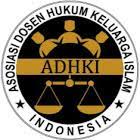Hadiths on Thalaq and Iddah with Psychological and Theological Normative Approaches
DOI:
https://doi.org/10.63731/jhk.v1i02.14Keywords:
Talak, Iddah, Psychological, Theological NormativeAbstract
Divorce (talaq) and the iddah period are two very important concepts in Islamic law, with both having a profound impact both theologically and psychologically. The Hadiths governing talaq teach that while divorce is permissible in Islam, it is a step that is hated by Allah and should only be done in very urgent situations, after various attempts to repair the relationship have failed. Likewise, the iddah period, which is obligatory for women who are divorced or whose husbands die, has many wisdoms, including providing an opportunity women to self-reflect and ensure their honor and pregnancy status. This paper aims to analyze the normative theological and psychological dimensions of thalaq and iddah. The normative theological approach discusses the Islamic legal basis for divorce and iddah, the wisdom behind their implementation, and the principles of justice and compassion contained in these teachings. Meanwhile, the psychological approach explores the emotional impact experienced by individuals, including husbands, wives, and children, in the face of divorce. The emotional recovery process required, as well as the importance of social and spiritual support during the iddah period, are also discussed in this article. As such, this article not only provides an understanding of the laws of thalaq and iddah in Islam, but also highlights the importance of emotional and psychological well-being for individuals involved in the divorce process and the iddah period.
Downloads
References
Abustam, A. -The Implementation of Talak Pledge in front of the Religious Court Session (A Review of Islamic Legal Philosophy). Al-Risalah: Journal of Islamic Family Law.
Arifin, Samsul. (2015)-Ihdad for Women in the Compilation of Islamic Law (A Gender Analysis). Lex Jurnalica 12, no. 3.
Butar-butar, Ulul Azmi Utami. (2019)-The Implementation of Thalaq in Islamic Fiqh in the Subdistrict of Pulau Rakyat, Asahan Regency (In Review of Uu No.1 of 1974 concerning Marriage).Thesis, no. 1.
Dewi, Nourma, and Femmy Silaswaty. (2019) Differences in Understanding the Concept of Pledge of Talak According to Religious Court Decisions and Islamic Sharia, Wajah Hukum 3, no. 1.
Dina Khalidah, Ahmad Subekti, Dwi Ari Kurniawati. (2021)-The NU's Review of Talak Seen from the Perspective of the Hadith Abghadh Al-Halal Ilallahi At-Thalaq (Case Study at NU PC Malang City). Hikmatina: Scientific Journal of Islamic Family Law 3, no. 2.
Hasanah, Tiyan. (2020)-The Istinbath Method of Nafkah Iddah Talak Bain According to Syafi'iyyah, Nizham Journal of Islamic Studies 8, no. 2.
Hayati, Vivi, (2015)-Juridical Impact of Divorce Outside the Court (Research in Langsa City), Samudra Keadilan Law Journal, Vol. 10 No. 2.
Kusmidi, Hendri. (2018)-Reactualization of the Concept of Iddah in Marriage, Mizani Scientific Journal: Legal, Economic and Religious Discourse 4, no. 1.
Muhja, Zainal Abidin. (2019)-The Position of Sighat Taqliq Talaq in Islamic Law, Akta Yudisia: Borneo Tarakan University 4, no. 1.
Santoso, Dri. (2020)-The Thought of Imam Syafi'i About the Provision of Quru' in Surah Al Baqarah Verse 228 and Its Relevance, Mabahits : Journal of Family Law 4, no. 01.
Sopyan, Yayan. (2004)-Gender Bias in Divorce (A Comparative Study Between Talak and Gugat Divorce).Musawa 03, no. 02.
Syar'i, Makmun. (2015)-Reformulation of the Law of Talak Outside the Court,‖ Mazahib: Journal of Islamic Legal Thought 14, no. 01.
Waliko. (2015)-The Concept of Iddah and Ihdad for Career Women whose Husbands Die (A Ma'anil Hadith Review), Yinyang: Journal of Islamic, Gender and Child Studies 10, no. 1.
Downloads
Published
How to Cite
Issue
Section
License
Copyright (c) 2025 Jurnal Hukum Keluarga

This work is licensed under a Creative Commons Attribution-NonCommercial-ShareAlike 4.0 International License.












